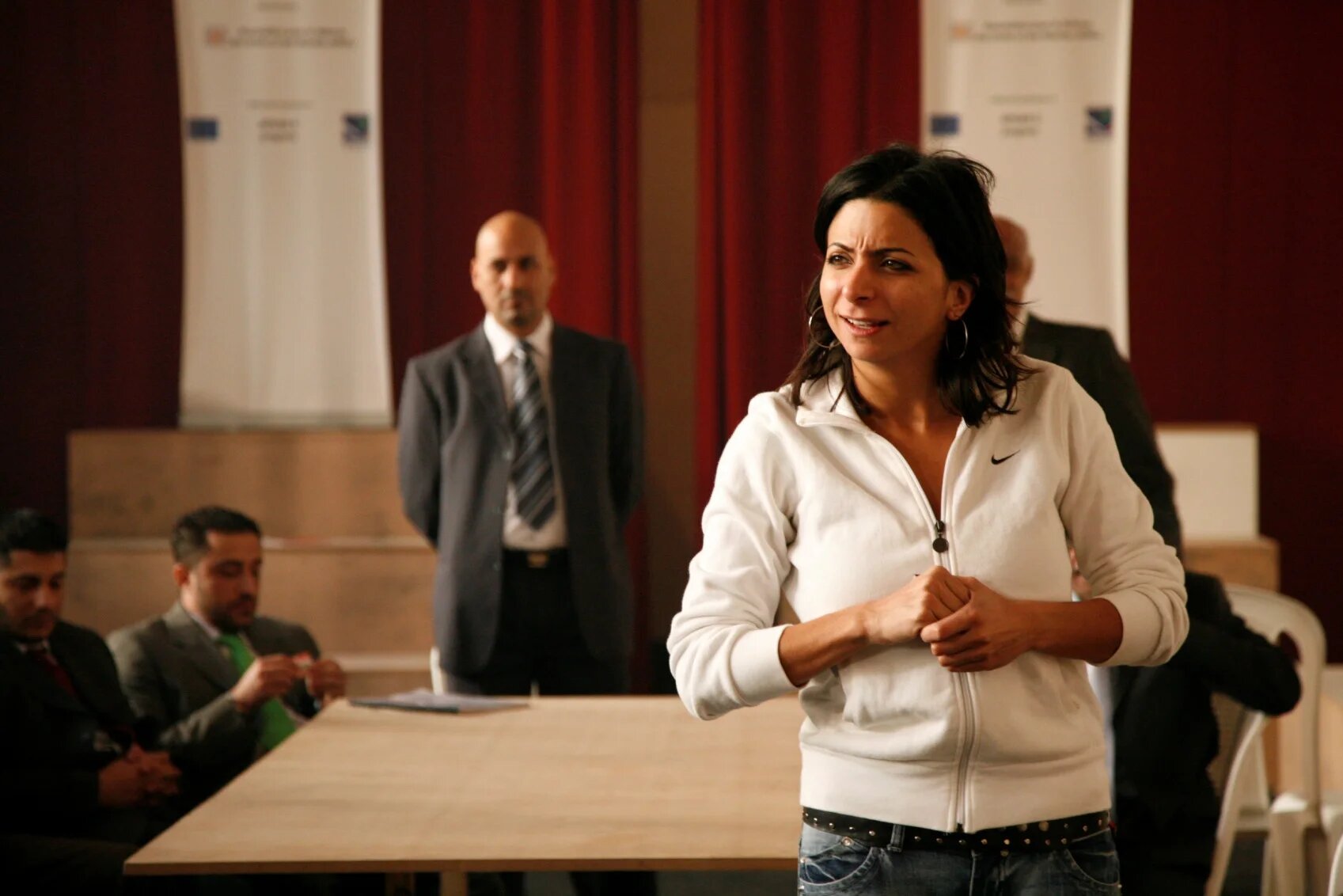Lebanese theater has long been a powerful tool for storytelling, and Zeina Daccache’s latest play, Li Chabakna Ykhallesna, is no exception.
Directed by Daccache and featuring a cast that includes herself, Sam Ghazal, and Joseph Jules (Youssef Chankar), a former prisoner who spent 30 years incarcerated, the play takes audiences on an emotional journey through Lebanon’s prison system, legal struggles, daily life behind bars, and the deeply personal stories of those affected.
At its core, the play explores the concept of imprisonment—both literal, as experienced by Youssef Chankar, and metaphorical, as experienced by every person who has lived through the economic collapse, COVID-19, the Beirut blast, revolution, and war.
These events are depicted as invisible bars in Lebanon, locking the mind in a vast, unspoken prison. Held at the Monot Theatre, the set design was kept to a minimum, with the obvious choice being to focus on the storyline.
The production used subtle lighting and blocking to seamlessly transport the audience through the narrative. The actors were present on stage, and in between the audience, breaking the fourth wall and reinforcing the idea that this is not a distant story; it is among us, within us, shaping our reality.
Daccache draws on her thirteen years of experience working in Lebanese prisons, where she practiced drama therapy with inmates and directed several plays and films featuring real prisoners. This reality seems into every scene, making Li Chabakna Ykhallesna feel less like a staged performance and more like a lived experience.
One of the most evocative aspects of the play is its focus on motherhood and purpose. Through a profoundly moving artistic choice, Daccache portrays her mother, acting out the role on a displayed screen while simultaneously playing recordings of her mother’s voice notes to the audience, drawing a powerful connection to the past after her mother’s passing.
This brings us back to the story of Youssef, who reunited with his mother after three decades behind bars,only to lose her to cancer a year later. His mother’s dying wish was to see her son free, and the play beautifully honors that dream.
But while the play does honor motherhood, it does not depict mothers as angels.
Instead, it presents mothers as complex human beings:flawed, resilient, and capable of making choices that shape entire generations. The journey of being lost and found, struggling and moving forward, is central to the storyboard.
When faced with the question ‘Why?’ (Leish), ‘Leish la2’ (Why not?) is always the answer. The play adopts that response: Why not? Why not accept the imperfections, the contradictions? Beyond taking a look into the deeply personal nature of relationships, the play also critiques the Lebanese legal system. Youssef was sentenced to life in prison, yet after 13 years of relentless advocacy and legal reform efforts, he was eventually granted parole.
The play does not reveal the reason behind Youssef’s life sentence, a choice which allows the audience to engage with his human experience rather than concentrate on a singular story.
The play doesn’t just recount his story—it uses it as a call for urgent legal changes and a reminder that justice must be fought for.
Despite its heavy themes, Li Chabakna Ykhalesna is not devoid of humor. Daccache balances the harsh reality with moments of laughter, ensuring the audience has space to breathe between emotional highs and lows. This is due to her Drama Therapy experience, which she’s been implementing in Lebanon and the Middle East since 2006.
The young Sam Ghazal plays a character that provides an “escape” from the tension, and it brings a comedic yet meaningful presence that showcases Daccache’s skill in humanizing every aspect of the story. Maguy Farah, the renowned Lebanese astrologer, makes a special appearance on the screen during the play. Her role is light-hearted and relatable, as Zeina Daccache reflects on different stages of her life while watching Farah, trying to analyze her star sign as an Aquarius and discover what the stars might hold for her.
Lebanese actress Cynthia Karam, who portrays Youssef’s mother on screen, brings her unique touch to the play. Speaking from the afterlife, her character takes the audience on an emotional journey.
While Zeina and Youssef remain grounded in the real world, Zeina’s mother, played by Zeina herself, and Youssef’s mother, portrayed by Cynthia, come together in the afterlife. Sitting side by side, they reflect on their lives. Through tragicomedy, Karam portrays a mother reflecting on her life’s mistakes.
She describes falling in love with a Palestinian man and how her Lebanese family rejected the relationship. Despite their opposition, she loved him deeply—even though he eventually married another woman.
At its core, this play is about survival, resilience, injustice, and the invisible bonds that tie us together as a society. Li Chabakna Ykhalesna is a moment of reflection on what it means to be human in Lebanon today.


